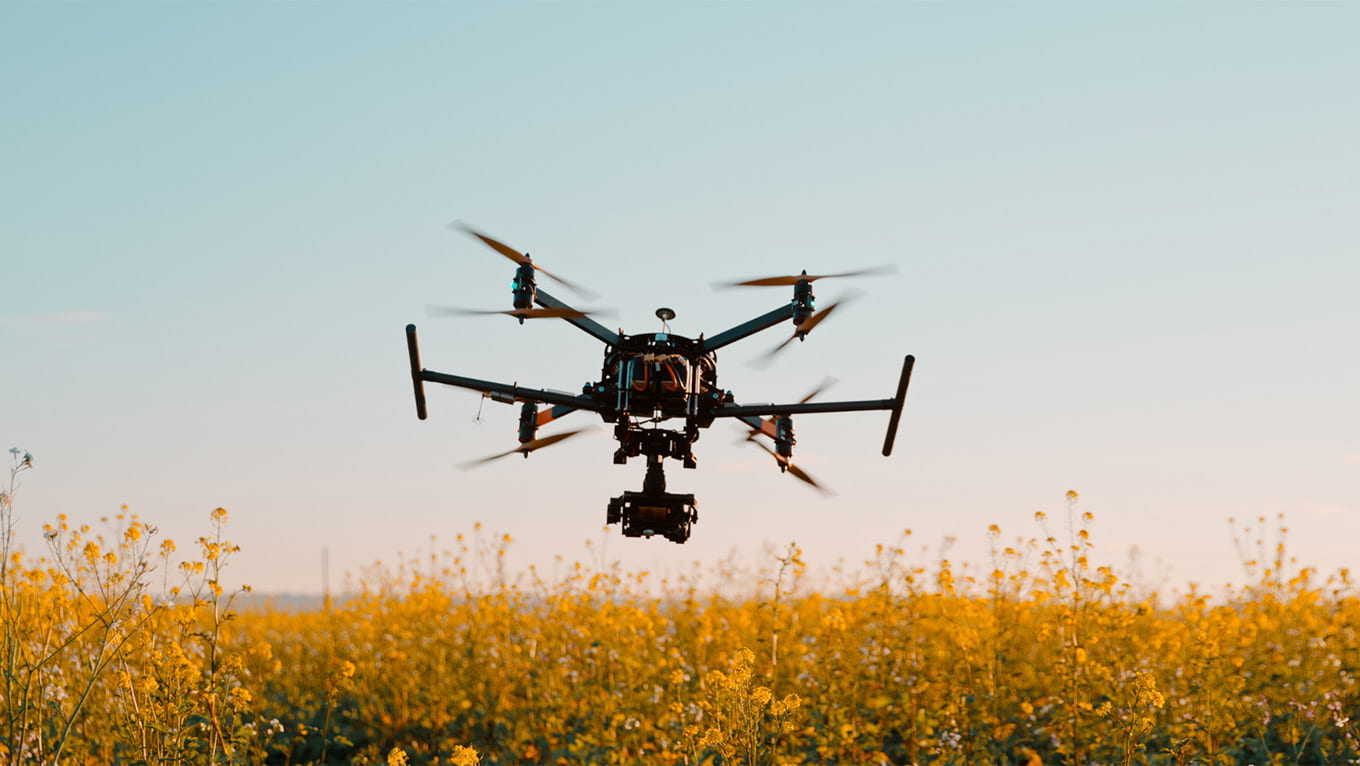CITRIS faculty and foundry alumni innovate for a more sustainable world
Since CITRIS was founded as a California Institute of Science and Innovation (Cal ISI) at the University of California (UC) in 2001, it has sought to catalyze IT solutions to society’s most pressing issues by uniting the unique strengths of the UC’s campuses at Santa Cruz, Berkeley, Davis and Merced under a single interdisciplinary banner. Developing sustainable energy technology to help mitigate the effects of climate change has been on the CITRIS roadmap from day one.
CITRIS researchers have seen a number of the challenges emerging in our warming world and risen to address the opportunities. UC Santa Cruz faculty and students are involved in several of the research and entrepreneurial projects supported by CITRIS.
Engineering greener aviation and improving environmental monitoring tools
Air travel currently accounts for approximately 2.5 percent of global carbon dioxide emissions, and the industry is rapidly becoming a top source of greenhouse gas emissions as flight demand continues to increase. CITRIS Aviation, a research initiative alongside CITRIS Climate, is prioritizing low-cost, sustainable transportation and drone technology that can be used to monitor the effects of climate change.
CITRIS Aviation Director Ricardo Sanfelice, a UC Santa Cruz professor of electrical engineering and computer science, is among the many CITRIS researchers working on environmental monitoring tools. In March, his team received $100,000 from the Air Force Research Laboratory (AFRL) to create a position, navigation and timing (PNT) system for aerial vehicles to serve as a safer and more accurate alternative to GPS in remote, wildfire-prone forested areas.
“In the wake of the COVID-19 pandemic, aviation is adapting its infrastructure to the new normal,” said Sanfelice. “Understanding sustainable solutions for propulsion, power and autonomy is at the core of CITRIS Aviation activities. We are collaborating across the University of California and with our industry partners to create more efficient, effective and sustainable technologies and policies.”
CITRIS Aviation affiliates are developing a firefighting “toolkit,” currently under review for UC climate action support, that combines aviation, sensing and decision-making technology to help first responders easily access real-time wildfire progression information and effectively guide the deployment of emergency resources.
CITRIS’s flagship Seed Funding program has also supported research that improves wildfire detection with uncrewed aerial vehicles (UAVs), such as the EUREKA project led by UC Santa Cruz’s Katia Obraczka, and creates drone-based remote sensing tools for post-wildfire landscape surveys, such as an ecological resilience project led by UC Davis’s Gary Bucciarelli. Additional awards have gone to work that advances energy savings in aviation, including a bioinspired, AI-optimized materials project led by UC Berkeley’s Grace Gu.
The 2021 UC Santa Cruz campus seed awards focused on drone technology specifically, supporting projects that featured drones creating spatial “heat maps” to measure snowmelt and detecting agricultural disease outbreaks with multispectral sensors and machine learning.
The 2022 UC Santa Cruz campus awards, themed around climate resilience, funded projects addressing green sources for hydrogen, ecological monitoring with robotics, net-zero home water systems and more.
Wonderfil (fall 2021 CITRIS Foundry cohort)
Plastic takes a walloping four centuries to fully degrade, and less than 9 percent of the 8 billion tons of plastic produced in the last century has been recycled. Half of all the plastic manufactured today is designed for single-use purposes and ends up in a landfill within a year.
Wonderfil, co-founded by Baskin Engineering alum Shiloh Sacks, is working to reduce single-use plastic containers for consumer packaged goods (CPGs) by building autonomous bulk refill stations for liquid and cream products, such as dish soap, laundry detergent, shampoo and conditioner, and placing its refill stations in universities, hotels and stores.
The winner of a spring 2021 CITRIS at UC Santa Cruz Tech for Social Good award, Wonderfil received a Westly Prize in February 2023, which it plans to use to grow its development team. Wonderfil stations are currently installed at UC Berkeley and UC Santa Cruz, as well as low-waste retailer Ethos in Capitola.




